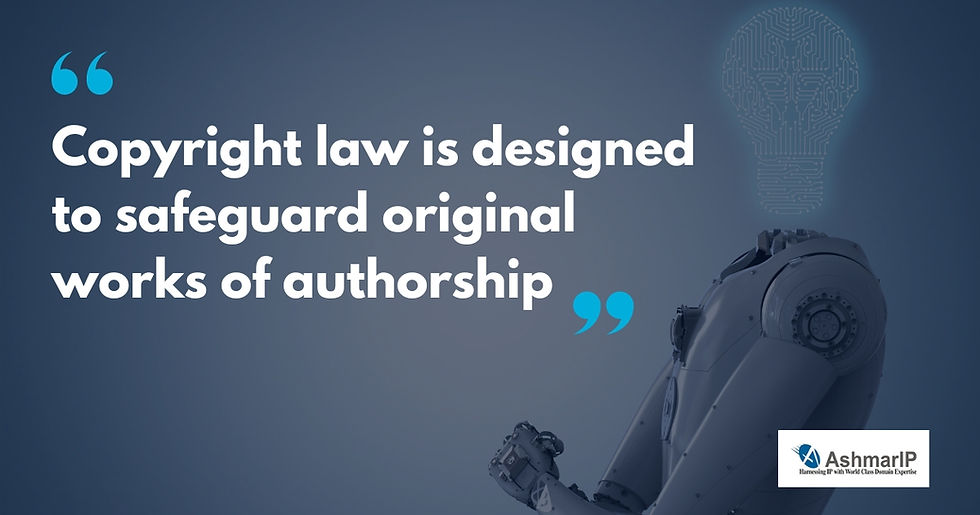Artificial Intelligence and Intellectual Property Rights By Anshul Bharti
- Dakhani Dhruva
- Jan 31, 2024
- 2 min read
Updated: May 14, 2024
In today's rapidly evolving technological landscape, the convergence of artificial intelligence (AI) and intellectual property (IP) rights presents both opportunities and challenges. Authored by Anshul Bharti, an Associate Vice President at Ashmar IP, India, this insightful piece delves into the complex terrain where innovation meets legal frameworks. (Artificial Intelligence and Intellectual Property Rights By Anshul Bharti)
As AI becomes increasingly integrated into various sectors, from e-commerce to creative arts, questions surrounding ownership and authorship arise. AI algorithms now contribute to everything from product recommendations to generating artwork and music, blurring the lines between human and machine creativity.
The surge in AI-related patent applications signals a growing interest in harnessing AI technologies across industries. However, legal complexities emerge when AI systems are proposed as inventors, challenging traditional notions of inventorship. While some jurisdictions, like South Africa, recognize AI as inventors, others, like the US, maintain that inventors must be natural persons.
Navigating Patentability Challenges: Assessing the patentability of AI systems poses practical challenges, particularly regarding subject-matter eligibility. IP regulators worldwide are grappling with the technical nuances of AI inventions, striving to strike a balance between fostering innovation and upholding patent standards.
In the realm of copyright law, the question of AI-generated content raises similar complexities. While copyright aims to protect original works of authorship, determining authorship in AI-generated content poses unique challenges. Recent cases highlight the need for clarity on how AI contributions are disclosed and acknowledged in copyright registrations. The Future of AI and IPRs:
As AI continues to evolve, policymakers face the daunting task of adapting legal frameworks to accommodate AI innovation while safeguarding intellectual property rights. Balancing innovation incentives with ethical considerations remains paramount in this digital era.
Conclusion:
In conclusion, Anshul Bharti's analysis underscores the profound impact of AI on intellectual property rights, urging stakeholders to navigate this dynamic landscape with caution and foresight. As AI reshapes the boundaries of creativity and innovation, finding a harmonious balance between technological progress and legal frameworks is essential for fostering a thriving innovation ecosystem.
Explore the full article for a comprehensive exploration of the intersection between artificial intelligence and intellectual property rights, and stay informed about the latest developments in this rapidly evolving field.




Comments